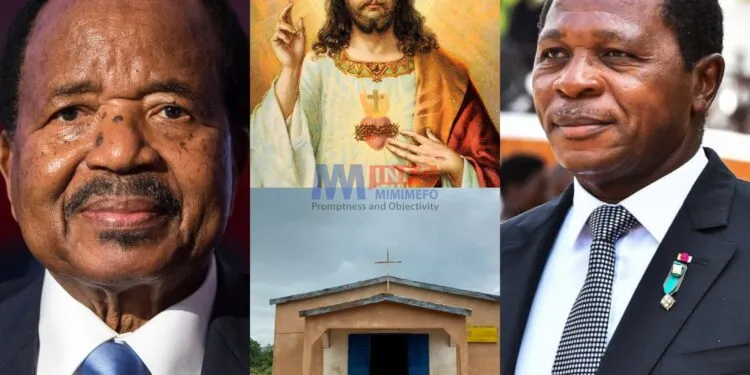Some unregistered churches have reportedly resumed operations barely two months after the Divisional Officer (DO) of Yaoundé V sealed them.
The Post newspaper’s Friday edition reports that some of these churches paid 300,000 FCFA each for local authorities to unseal them.
The DO had earlier sealed more than 200 churches following an order from the Minister of Territorial Administration, Paul Atanga Nji. The minister had strongly condemned the proliferation of churches operating without proper authorisation from the presidency.
“Let any unregistered church close down before I get to them,” Atanga Nji warned. “Only the Head of State has the right to authorise a church in Cameroon,” he emphasised.
Only 47 Churches Officially Registered
Despite the widespread presence of churches across the country, only 47 are officially registered. In contrast, over 10,000 churches are said to be operating in Cameroon, many of them without formal authorisation.
To obtain legal status, churches must submit documentation to the Ministry of Territorial Administration. They then forward the files to the presidency for final approval. Until recently, authorities appeared to tolerate their operations despite the lack of registration.
A source quoted by The Post said some churches had already submitted their documents and were simply awaiting approval. This is an explanation offered for why they resumed services despite the earlier crackdown.
However, it remains unclear who benefits from the alleged payments being made to reopen these churches—whether the funds go to the state or to individuals within the administration.
Not the First Crackdown
This is not the first time the Cameroonian government has launched a crackdown on unauthorised churches. Similar efforts were made several years ago, though enforcement appeared inconsistent.
Despite previous attempts to clamp down on unregistered churches, the number has continued to grow, raising questions about the effectiveness and longevity of current enforcement measures.
Whether the latest actions signal a long-term shift in government policy or simply another temporary intervention remains to be seen.



